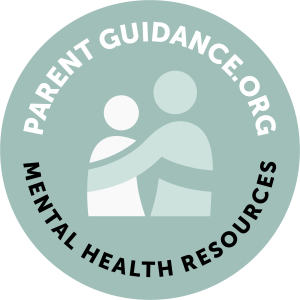 All children experience adversity. This is an important part of life and is usually a source of learning and growth. However, sometimes adversity is significant – enough to change a child’s behaviors and normal functionality.
All children experience adversity. This is an important part of life and is usually a source of learning and growth. However, sometimes adversity is significant – enough to change a child’s behaviors and normal functionality.
Differences in behaviors and functionality often manifest in a child’s academic performance/attendance, family and/or peer relationships, and engagement in other daily activities.
This underscores the importance of open and frequent parent and educator dialogue. Positive relationships and communication (also extended to healthcare providers and others with a vested interest) increase everyone’s ability to help children with issues in real time (before they require elevated responses).
Educators and parents can collaborate on basic support tools and available resources to help understand and address underlying challenges a child is experiencing. Childhood adversities link closely to their mental health and are often complex – some are school related, and some are not. But working together, we can unravel them and help students through difficult times.
Community Partnerships that Work
 Occasionally, mental health concerns advance beyond the expertise of our teachers, administrators, and specialists. Educators are trained to recognize this and discuss them with parents. Fortunately, MCSD can refer parents to elevated support through a network of mental health professionals. These specialists can screen children, provide outpatient therapy, and refer them to even higher or advanced levels of treatment.
Occasionally, mental health concerns advance beyond the expertise of our teachers, administrators, and specialists. Educators are trained to recognize this and discuss them with parents. Fortunately, MCSD can refer parents to elevated support through a network of mental health professionals. These specialists can screen children, provide outpatient therapy, and refer them to even higher or advanced levels of treatment.
Again, communication is key; mental health specialists work closely with parents to develop a treatment plan. Parents are guided through options and resources that help students toward pathways that resolve challenges and behaviors and their associated mental health.
Our MCSD social workers, behavior coaches, and specialists do amazing work to address problems to a point. But when a child’s mental health needs acute attention, the District leverages our meaningful partnerships to give children the support they need.
Hopeful Beginnings (HB), Project Connection (PC), and Odyssey House (OH)

HB offers wrap-around services, including skills services for children and parents, respite services, medication management, case management, Crisis support line, DBT skills group for families, in-home therapy, and an adolescent day treatment program.
They work with clients and their families to refer them to higher levels of care when necessary, whether that be within their program or in another community program that is better suited to meet their needs.
HB’s school-based therapists work closely with the school team to provide coordinated services and support to the students and families that we serve.
Project Connection
PC assigns school-based therapists in schools based on demand. They work closely with social workers to determine varying levels of support and are funded through private insurance, Medicaid, self-paid reduced rates, and even gap coverage from grants.
The program also includes two additional programs, called Respite and Skills Development. The former matches similar students into small groups to go on hikes, events, and other experiences to give kids an opportunity to learn social and practice skills under the watchful mentoring of an adult leader.
Skills Development is more home-based work that a trained therapist provides the student and their familiar. Recognizing that student struggles are sometimes interrelated with family dynamics, including day-to-day living and decision making. Therapists guide families on structures, schedules, and communication to help get at the root of problems.
Odyssey House
OH has school-based therapists that provide evaluations and services for students referred to them. The organization offers after-school programs for at-risk youth focused on prevention and early intervention. This includes their specialization of working with youth who are either at-risk or abusing substances or who have behavioral issues.
If You Need Help…
If you are concerned about changes in your child’s behavior or life, talk with their teacher(s) or school social worker, physician or other providers, and others. Communication and early intervention are critical to addressing problems while they are manageable.




